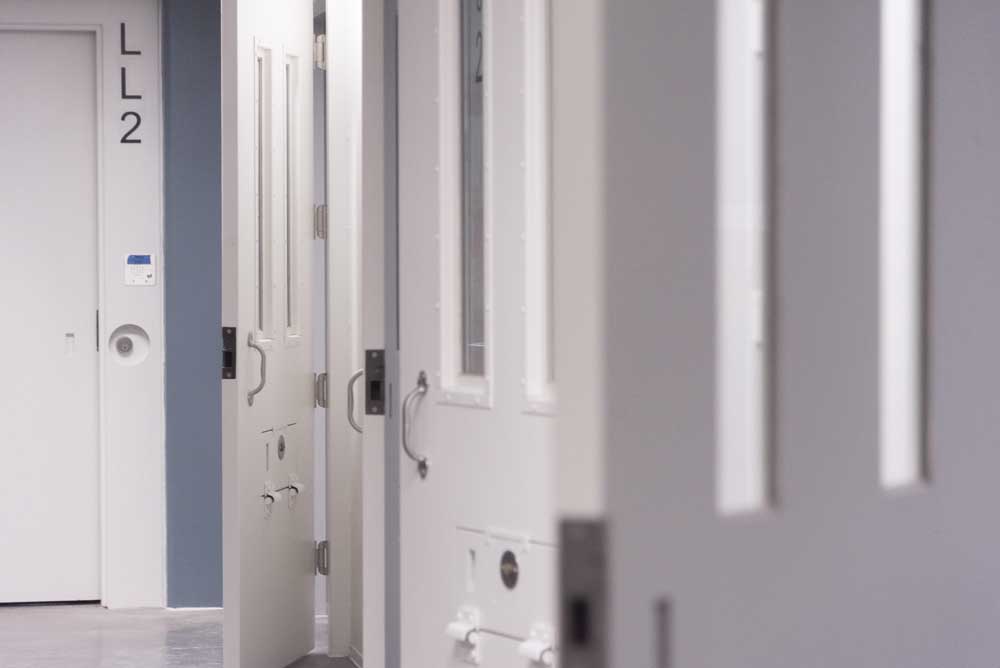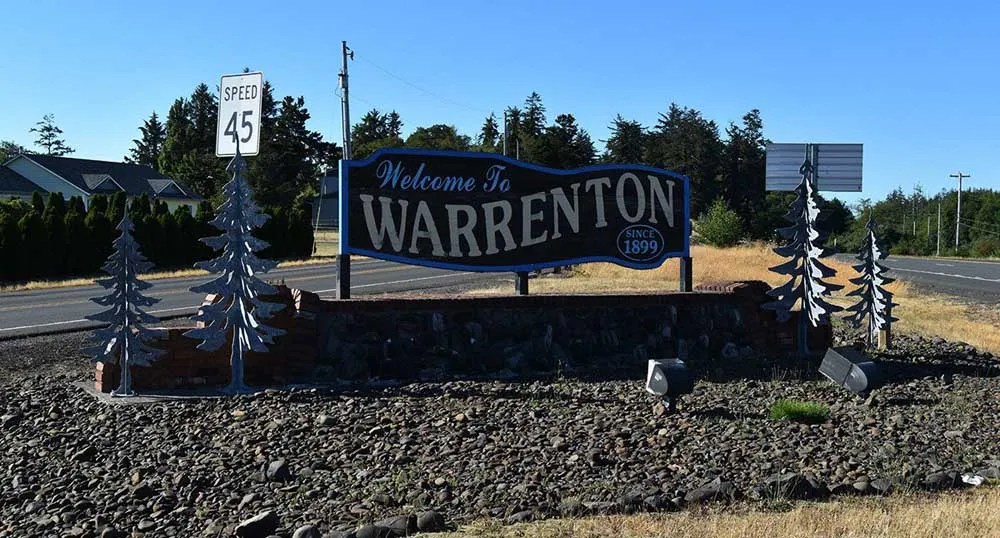Lawmakers seek flexibility with lodging-tax funds
Published 3:00 pm Wednesday, February 26, 2025

- A new Clatsop County Jail opened in Warrenton last year.
As local governments seek additional funding for public safety and infrastructure, some are hoping for a bigger piece of the pie from the transient lodging tax.
Trending
A handful of bills introduced by North Coast leaders this legislative session could help make that happen.
For decades, cities and counties in Oregon have collected taxes from hotels, motels and other short-term lodging providers. In 2003, the Legislature established new restrictions around how those tax dollars could be spent, requiring 70% to go toward tourism promotion and tourism-related facilities and reserving the remaining 30% for local discretionary spending. Over time, that’s created what some jurisdictions see as an imbalance.
In Clatsop County, which historically has had among the highest per-capita rates of tourism in the state, leaders have long expressed concerns over the disproportionate burden tourism can place on parks, roads and essential services like public safety. Data shows that nonresidents make up about a third of the adults in custody at the Clatsop County Jail — a statistic many have argued is connected to the area’s number of overnight visitors.
Trending
Earlier this year, commissioners considered an ordinance that would increase countywide and unincorporated lodging tax rates, citing a roughly $1.2 million shortfall at the county jail, which receives funding from the tax. The county has postponed further discussion until July to see what may come out of the legislative session, but an increase isn’t off the table.
Cyrus Javadi, a Republican whose district includes all of Clatsop and Tillamook counties and portions of Columbia County, said he’s seen a similar conversation unfold in Tillamook.
“When you look at that, that seems to be the direction, if no changes are made, the transient lodging tax is going,” Javadi said. “And that’s so the cities can keep up with some of their infrastructure needs, because there’s no limitations, really, on how they spend those general fund dollars on their infrastructure.”
Javadi is a chief sponsor for two bills this session aimed at increasing lodging tax flexibility. One bill, HB 3556, would add a definition to the existing law to include public safety and community infrastructure as acceptable uses under the larger portion of the 70/30 split.
The other bill, HB 3325, would change the split entirely in some areas. The bill as introduced proposes that districts in counties with high overnight visitor rates can reverse the distribution so that, out of the first 5% of taxes collected, 70% would go to essential services and the remainder to tourism-related promotion. The rest of the tax revenue would be allocated as before. As the bill moves through the session, however, Javadi said those specifics are likely to change.
Recently, he’s suggested the idea of a 50/50 split.
“I think it’s a real possibility,” Javadi said. “Legislators in the building, in both the Senate and the House, are very interested in this problem. The story is compelling. They know this has been an issue that’s been talked about for more than a decade.”
Sen. Suzanne Weber, another Tillamook Republican whose district includes all of Clatsop, Tillamook and Columbia counties and portions of Multnomah, Washington and Yamhill counties, has also introduced two Senate bills. SB 453 would require the Legislative Revenue Office to study the 70/30 split while SB 457 would require the Legislative Revenue Officer to study the inclusion of public safety programs as tourism promotion for lodging tax expenditures.
“Nothing is perfect forever, so I think it behooves us to look at what it’s done since it’s been instituted, and to be able to look forward to see if the results are such that maybe we need to make changes,” Weber said.
In their advocacy for increased spending flexibility, both lawmakers have pointed to jurisdictions where tourism promotion revenues have accumulated while general fund revenues have run dry.
Seaside, for example, has accumulated around $9 million over the past several years above what it’s needed to operate its convention center, visitors bureau and other tourism-related services, City Manager Spencer Kyle confirmed.
Although there are other tourism-related projects the city could put those funds toward, Kyle said they’re a much lower priority than infrastructure projects and public safety. The impact of tourism on the city’s roads, water, sewer, police, fire and ambulance services, he added, far exceeds the 30% allocation allowed.
Weber hopes the bills on the table could help.
“Yes, if (tourists) come, we’re going to enjoy them being here, and we have a lot for them to appreciate,” Weber said. “But then when they go home, we have to be the ones that, you know, clean the beaches, take care of the roads to make sure that they’re passable, make sure they’ve got bathrooms, clean up after them. And it’s something that we just don’t have the capacity to do with the current resources that we have.”
Late last year, the League of Oregon Cities released a list of legislative priorities, including increased lodging tax flexibility to allow local jurisdictions to address strains on tourism-impacted services. Jenna Jones, a league lobbyist, said the House bill that adds a definition to the lodging tax law best addresses that priority. The League of Oregon Cities is continuing to monitor the other bills.
Clatsop County is also in a wait-and-watch phase. With amendments, a couple of bills could meet the county’s interest, but time will tell which one offers the best chance for success, said County Manager Don Bohn.
Javadi and Weber’s bills provide a menu of options — and with months left in the session, there’s still significant room for changes. The path forward could include a combination of bills, or just one.
“I think that whichever bill passes, it will be a victory, you know, if it even gets to a vote,” Weber said.
As of Tuesday, all of the bills were still in committee. For the House bills, Javadi said the plan is to convene a meeting with stakeholders on both sides of the issue before a hearing with the House Committee on Emergency Management.
He said including multiple perspectives — not just local jurisdictions and law enforcement, but representatives from the tourism industry like the Oregon Restaurant and Lodging Association and the Oregon Coast Visitors Association — will be imperative.
“The point is not to leave anybody out. I think that would be bad politics, and would lead to bad outcomes,” Javadi said. “I think we want everybody involved, and it’s a tough discussion to have, but it’s not a discussion that people are going to be surprised by. I mean, this is something we’ve discussed countless times before.”









